您的購物籃內沒有商品!
Honey is a pure product which combines plants and the work of bees. Bees first gather the nectar at the bottom of flower cups. Bees can't extend their tongues which means that not all flower nectar is accessible to them. That's why some flowers are said to be melliferous.
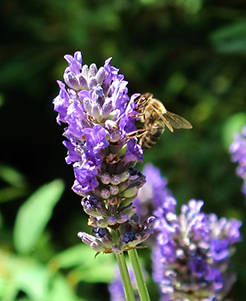
Worker bees start processing the nectar on their way back to the hive by adding an enzyme. Once back at the hive, they pass the nectar back and forth by trophallaxis, adding saliva and digestive juices on each exchange to gradually transform it. This "essential honey" is then stored in cells where it is partially dried and matured by the bees fanning their wings (bzzzzz!).
The bees later store it in cells which are sealed with wax to build stores for the winter. Since bees really like to eat, they will continue to store honey as long as they have room...and the flowers continue to produce enough nectar.
To obtain honey for human consumption, beekeepers harvest between April and November depending on which plants are flowering. The frames are removed when most (over 80%) of the cells are full.
Back at the honey house, the beekeeper unseals the frames and filters the honey to remove impurities.
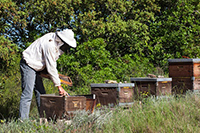
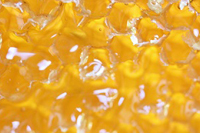
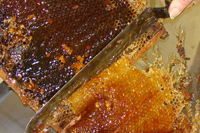
Watching this step is a very enriching, fun and often very tasty experience (mmmm...the honey is still locked in its wax honeycomb...a real treat!). Many French beekeepers provide visits and discovery tours when they can. Ask your favourite beekeeper!
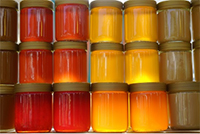
Honey has always been used for its best-known property...its sweet taste! It has long been used in cooking recipes by all cultures, with gingerbread leading the way.
It's high in carbohydrates and was used by Greek and Roman athletes as food or as a drink by mixing water with the precious nectar. Ancient documents also show that it was used as a skin care product. This use has been approved for some medicinal purposes, for example, the university hospital centre in Limoges uses it for certain surgeries.
Depending on the flowers they are made from, single flower honeys will have different properties: they should be explored for their taste and texture...and more!
Honey has a special place among Propolia products. It is used in: